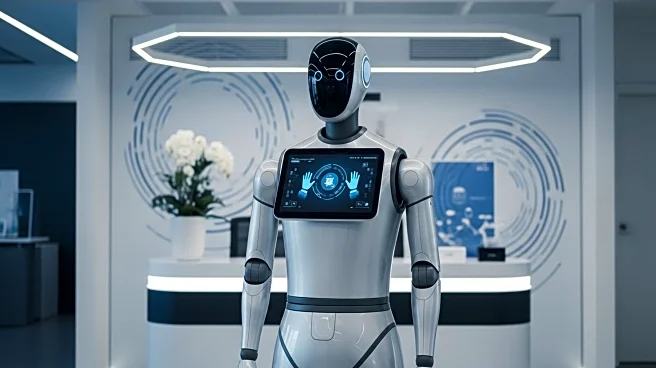What's Happening?
The AI receptionist market is expanding with five new offerings from vendors like Wildix, CallMiner, 8x8, Jobber, and Phreesia. These AI platforms are designed to handle a variety of customer interactions, from scheduling appointments to answering service inquiries. Wildix's Wilma AI, for example, can manage voice and text inquiries and escalate to human agents when necessary. Jobber's virtual receptionist targets small service businesses, while 8x8's Intelligent Customer Assistant has been updated to include new features like Knowledge AI and xApps for channel-switching. These developments reflect a growing trend towards automating front-office tasks to improve customer experience and operational efficiency.
Why It's Important?
The expansion of AI receptionists signifies a shift in how businesses manage customer interactions, offering potential cost savings and efficiency improvements. By automating routine tasks, companies can free up human staff for more complex duties, potentially enhancing customer satisfaction. This trend is particularly relevant in sectors with high call volumes, such as healthcare and service industries. However, the integration of AI also raises questions about job displacement and the need for businesses to balance automation with human touch.
Beyond the Headlines
The rise of AI receptionists highlights broader trends in digital labor and the increasing reliance on AI to augment human workforces. As these technologies become more sophisticated, they may lead to changes in workforce dynamics and necessitate new skills for human workers. Additionally, the ethical implications of AI in customer service, such as data privacy and the potential for bias, will need to be addressed as these systems become more prevalent.









